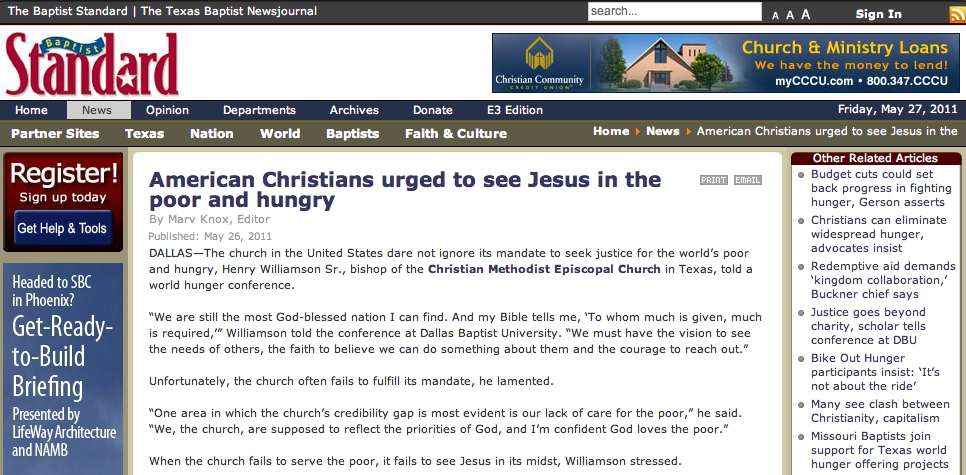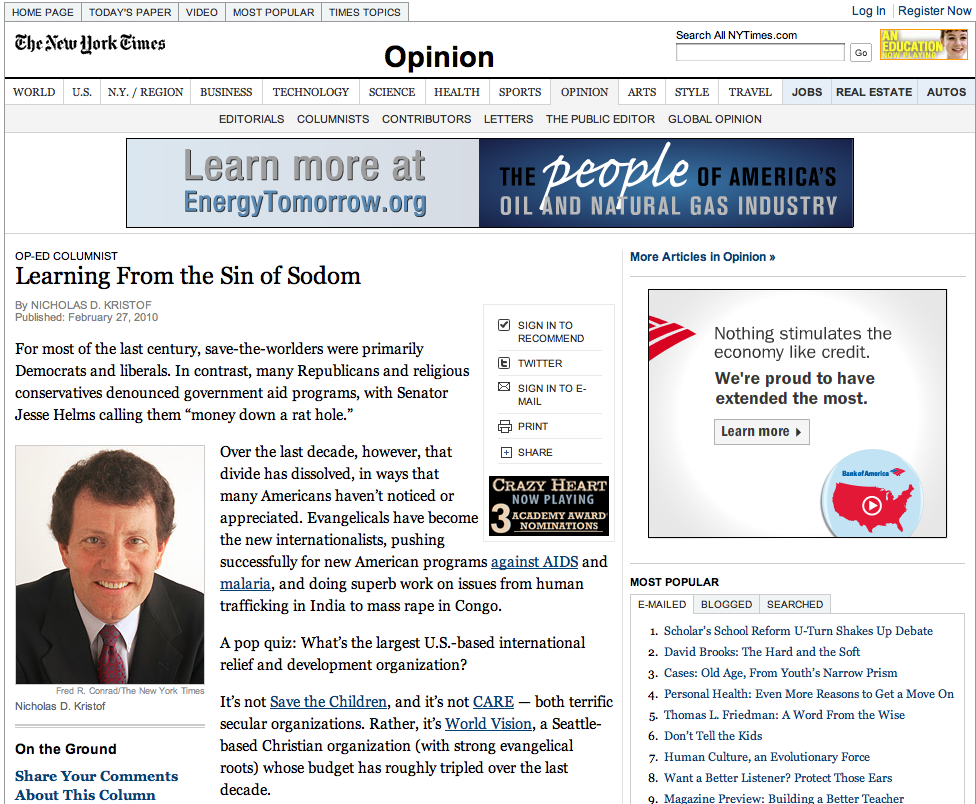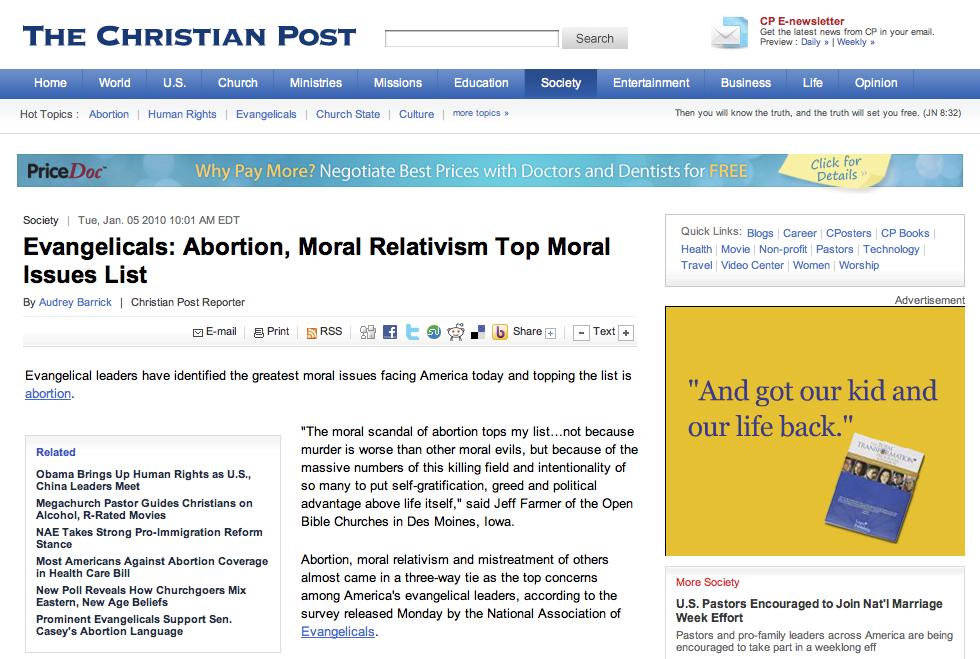 DALLAS—The church in the United States dare not ignore its mandate to seek justice for the world’s poor and hungry, Henry Williamson Sr., bishop of the Christian Methodist Episcopal Church in Texas, told a world hunger conference.
DALLAS—The church in the United States dare not ignore its mandate to seek justice for the world’s poor and hungry, Henry Williamson Sr., bishop of the Christian Methodist Episcopal Church in Texas, told a world hunger conference.
“We are still the most God-blessed nation I can find. And my Bible tells me, ‘To whom much is given, much is required,’” Williamson told the conference at Dallas Baptist University. “We must have the vision to see the needs of others, the faith to believe we can do something about them and the courage to reach out.”
Unfortunately, the church often fails to fulfill its mandate, he lamented.
“One area in which the church’s credibility gap is most evident is our lack of care for the poor,” he said. “We, the church, are supposed to reflect the priorities of God, and I’m confident God loves the poor.”
When the church fails to serve the poor, it fails to see Jesus in its midst, Williamson stressed.
Speaking to the event called “An Evangelical Advocacy Response to Global Childhood Hunger,” he told a story of Mother Teresa saving the life of a child whose feet and hands had been gnawed off by rats. That evening, she asked a visitor to her center if he had seen Jesus that day. Overcome by the horror, he acknowledged he had not seen Jesus.
“But Mother Teresa saw Jesus all around her every day” when she held the poor and suffering, the ones Jesus called “the least of these,” Williamson said.
In order for the church to respond to childhood poverty and hunger appropriately, Christians must see children as Christ sees them, demanded Paul Msiza, general secretary of the Baptist Convention of South Africa . “Jesus said, ‘If you want to know who is the greatest, look at the children.’ But churches don’t take children seriously.”
Churches must change that mindset and welcome children, looking out for their welfare the world over, he urged.
“We must not allow children to roam the streets naked and hungry and pretend all is well,” he said. “But there are millions … dying today because of hunger. In Africa, 20 children die every minute.”
The church must speak on behalf of children, just as Jesus did, Msiza insisted. He thanked America and aid agencies for providing aid and hunger relief around the world. But he called on the Western world to hold Africa’s leaders accountable for the welfare of their own people.
“We cannot stand here and allow the powers back in Africa not to do their part,” he said. Although America and others provide billions of dollars in relief aid, the African nations should be required to contribute at least a portion—perhaps 25 percent—of that aid, he added.
“We can do this,” he said. “… It is not fair until African governments take care of their children.”
The church in America is stretched by the tension between individual rights and communal responsibility, observed Joel Hunter, pastor of Northland, A Church Distributed in Orlando, Fla.
On one side, rugged individualism compels Americans to ask, “Am I my brother’s keeper?” Hunter said. “This is the ancient voice, the abdication of responsibility” for other people.
On the other side, Americans root for the underdog and often set up processes to care for hurting people, he added. The overwhelming challenge causes them to band together to defeat hunger because no group can do it alone.
When Christians look to Jesus’ model, they see he had compassion on people and instructed his followers to feed them, he said.
But unfortunately, many Christians today ignore that model, Hunter reported.
“A spiritual alarm goes off when I hear Christians saying, ‘How much of my money can I keep?’” rather than asking how they can help the poor and hungry, whom Jesus loved.
“Hoarding your own stash is the original temptation,” he said, comparing selfish contemporary Christians to Adam and Eve, whose original sin was to supplant their need for God.
FIND THIS ARTICLE AT: http://www.baptiststandard.com/index.php?option=com_content&task=view&id=12564&Itemid=53






